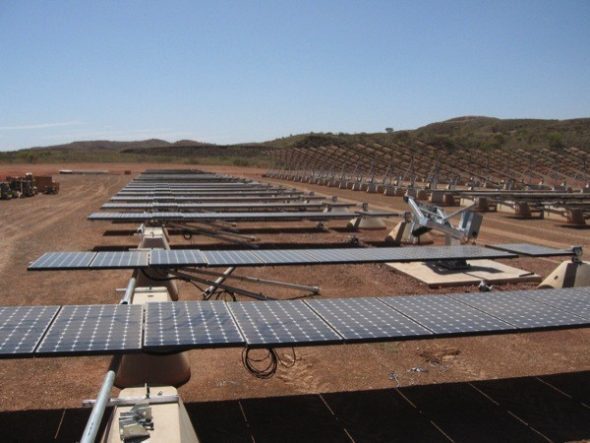Australia’s largest 100 per cent indigenous-owned company, Carey Mining, has joined forces with WA solar outfit Next Power to create the country’s first majority-owned indigenous solar company, Carey Power.
The Perth-based joint venture has the dual goal of delivering renewable energy solutions to remote communities local government’s and mining sites, as well as empowering and training indigenous staff and providing sustainable employment for Aboriginal people.
The new company recently signed a MoU with Karratha-based Horizon Power to investigate the supply of electricity in Western Australia’s regional and remote centres, as well as an agreement with Larrakia Development Corporation, which is owned and operated by the Traditional Owners of Darwin, to provide solutions for the NT government’s 2030 strategic plan.
Minnie King, manager of Carey Power and a Torres Strait Islander, says the company will initially focus on developing solar energy projects, using modules made in China by project partner Suntech. “We’re interested in looking at perhaps doing hybrids, where there are existing diesel generation systems in communities, looking at installing solar there, perhaps solar farms,” King told ABC Rural in an interview on Monday. “But in saying that, there are other technologies that we would be interested in exploring down the track.”
But King told ABC’s Babs McHugh that what sets Carey Power out from the pack – it seems competition is growing rapidly in the race to deliver power solutions to remote Australia – is its commitment to deliver training and employment opportunities, as well as long-term economic opportunities, to the people in these remote communities – with a focus on the aboriginal population.
“This has been a long time coming,” King said. “If you think about a community who, for generations, have grown up on diesel-powered generators, if we can offer an alternative that is a lot cleaner, that can provide employment, …opportunities for people to train …and people can have a sense of ownership of a solar farm; …this is a long-term investment.”
King says Carey Power will be looking at offering people in remote communities a certificate in resources and infrastructure, a nationally accredited course which they would align with training programs for solar installation and maintenance. “That’s a level of training that we believe an aboriginal person may want to use further down the track,” she told McHugh. “It gives them a wonderful foundation …to build in terms of training and access to employment opportunities.”
King told McHugh that now was the right time for the Carey Power to act, with diesel rising in cost and the prices of solar modules falling – not to mention the recent introduction of Horizon Power’s location-specific FiT program, which has further incentivised the development of PV (the highest FiT potentially being AUD0.50/KWh) in remote parts of WA where it is expensive for the utility to provide grid electricity.
“At this point in time, where there is a focus on closing the gap (between Australia’s indigenous and non indigenous people)… it’s an opportune time for us to act. Renewable energy and looking after country,” King said.








